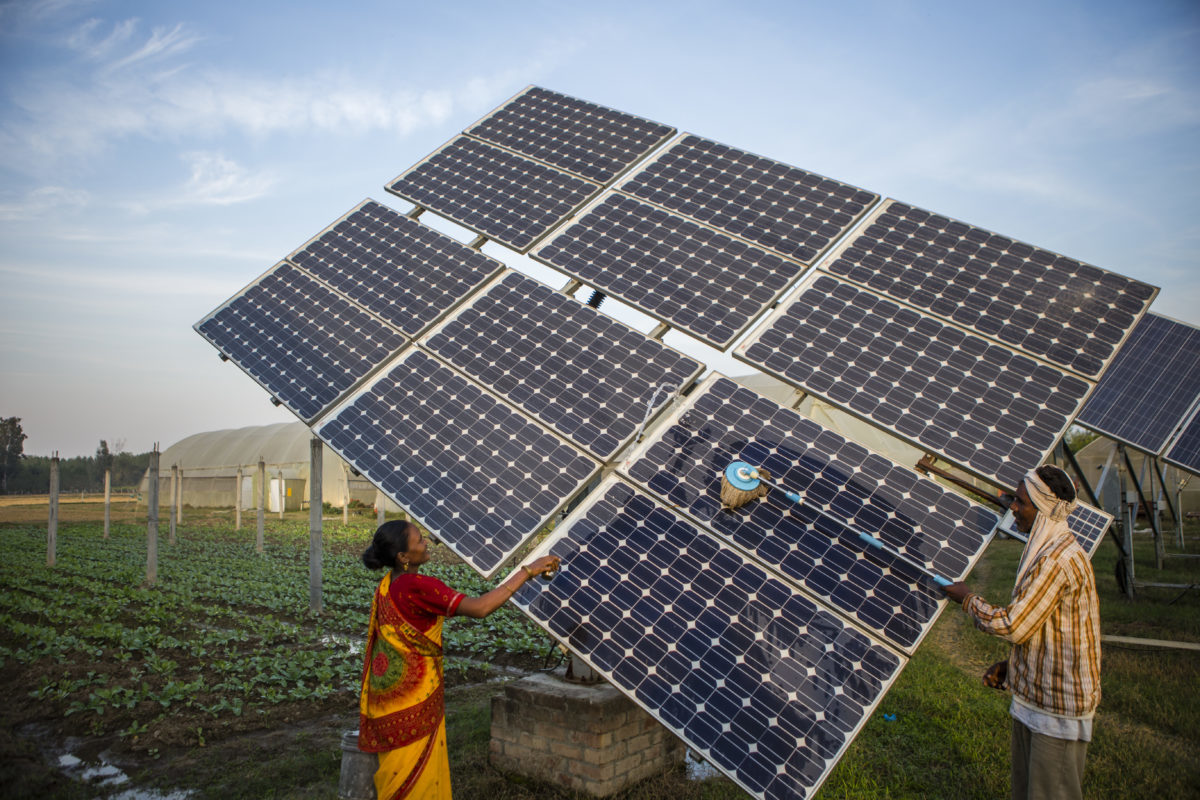A new report by GOGLA says India has the potential to become a hub for the assembly and manufacturing of decentralized renewable energy (DRE) products for the global market. The demand for solar DRE products is thriving in Africa, South Asia, and East Asia. India, which ranks second in the world for its attractiveness as a manufacturing hub, has the opportunity to cater to this demand.
The report covers solar lanterns, solar home lighting system, solar streetlights, solar water pumps, and solar-powered DC fans.
Making the case for scaling up local manufacturing, the report highlights products made in India are increasingly being favored in the international market [for their quality] over the products from conventional suppliers. These are also cost-competitive with that of products manufactured in other countries. While India’s key manufacturing costs for land and electricity are higher than in China, it offers the advantage of up to 175.5% lower labor costs than China.
The national and international demand together may be able to solve the challenge of economies of scale that has been often cited as a challenge to cost reduction by manufacturers in India.
Potential areas
India lacks the production of base components (like semiconductor wafers and ingots required for solar panels) due to the unavailability of raw materials. Given that, the report highlights the assembly of intermediary components and finished products provides the largest opportunity for manufacturing in India. Intermediary components include solar panels, luminaires, charge controllers, and batteries. Finished products include solar lanterns, streetlights, and solar fans.
Further, the rising cost of freight and longer lead times make India a more attractive market for local manufacturing of these products.
Freight charges have increased by five to eight times from 2019-20 to 2021-22. This has increased the cost of imported products and reduced vendor margins. For example, the increase in freight costs resulted in a $16/kW increase in the price of solar modules imported to India during this period.
The report says India can become more competitive with China in manufacturing solar and solar DRE products by addressing the higher cost of land and achieving favorable economies of scale.
In 2021, China’s solar module manufacturing capacity was around 500 GW, compared to 15 GW in India. The Indian government can help increase the scale of DRE manufacturing with measures to drive up local demand and export DRE products and parts to other countries. Further, DR manufacturers can be provided land at subsidized costs and/or land in special economic zones.
“While the local manufacture of most base components for solar cells in India is a long-term ambition due to the lack of raw materials, the potential to increase the direct import of base components to expand the manufacture of solar cells and modules is more feasible,” says the report.
Lithium-ion (Li-ion) batteries are an essential component of most solar DRE products.
The expected growth in the manufacture of li-ion batteries in India due to the development of the EV market could benefit the manufacture of Li-ion batteries for the assembly of DRE products. Further research is needed to explore specific actions that could enhance the local production of li-ion batteries for the assembly of DRE products.
The report also analyses the policy environment for manufacturing DRE products in India and makes recommendations to maximize available opportunities. It highlights challenges such as lack of incentives, low-cost financing, and R&D support to improve the cost competitiveness of Indian DRE manufacturers, among others. Gaps also exist in skills and standards enforcement.
This content is protected by copyright and may not be reused. If you want to cooperate with us and would like to reuse some of our content, please contact: editors@pv-magazine.com.









By submitting this form you agree to pv magazine using your data for the purposes of publishing your comment.
Your personal data will only be disclosed or otherwise transmitted to third parties for the purposes of spam filtering or if this is necessary for technical maintenance of the website. Any other transfer to third parties will not take place unless this is justified on the basis of applicable data protection regulations or if pv magazine is legally obliged to do so.
You may revoke this consent at any time with effect for the future, in which case your personal data will be deleted immediately. Otherwise, your data will be deleted if pv magazine has processed your request or the purpose of data storage is fulfilled.
Further information on data privacy can be found in our Data Protection Policy.